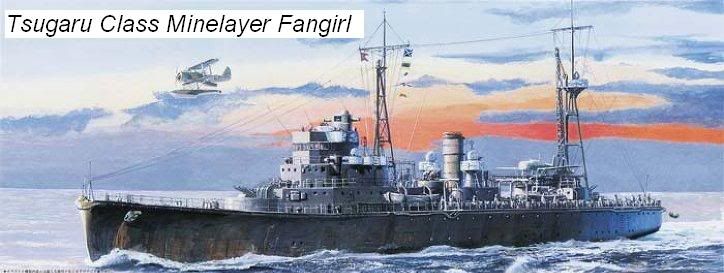Sorry but I view "luck" as being a poor player's excuse for things not going right. You can't let concerns about luck paralyse you. All you can do is put together a good operation and minimise the possibility of chance intervening. Sometimes it will go brilliantly, at other times terribly BUT when there's a run of things going badly or well then that's not due to luck, that's due to something you're doing.
As to what is needed for this to stay interesting. I think your advice is the counsel of despair and ineptitude. Waiting for "luck" to turn is utter BS. Cuttlefish has NOT created a strong, coherent, mutually supporting defensive line and THAT is why his bases are falling.
Blaming it on luck is frankly an extraordinarily external locus of control.
So if you're rolling 1's and your opponent is rolling 6's on a 6 sided die on every important encounter, what do you call it? If you abandon a plan at that point based on those results because you think those results mean your plan isn't good, you're not a good player. You should evaluate your plan to see if you can include fail saves in the future, sure, but the results don't always have a direct relation to a plan. In fact, many times they don't.
Luck is not a material factor, it's just a combined description of everything that can go wrong/right.
I'd like you to point out what the problem was with the recent SCTF engagements from a planning perspective, with the plan for the Ambon counterlanding (assuming you don't know there are PT boats or the precise position of Allied carriers) and propose an alternative. I can give you a 100% guarantee that said alternative could be ruined by you rolling a series of 1's and the opponent a series of 6's so to speak.
The problem with reducing many variables to dice rolls or circumstance factors is that results can quickly become far more skewed than in real life. Most of the time, due to the statistical odds, a certain balance will be achieved, but when the opponent gets a series of good rolls and you don't, no good strategy can save you. You'll probably say a good strategy can compensate that, but it can't. Try playing a game where you get the worst result possible on every major action and your opponent gets the best result. I can guarantee that you won't win.
I think it's fairly insulting to call my advice the counsel of despair and ineptitude, which also means my suggestion comes from me being inept. I would suggest that if we are to have a discussion, you don't resort to insults in the future.
As to your SC TF example... His SC TF wasn't properly constituted within the confines of the game engine to achieve maximal results. If you didn't just put things down to luck but looked into the innards of the engine to figure out how it matched forces up etc you might realise that.
Considering that we're looking at the same results, how do you know that? Could you point out how you know precisely what happened?
You're also completely missing my point, I'm not putting everything down to luck, I'm putting the lack of success down to Cuttlefish getting bad results and Q-Ball getting good ones, which as this is a game is caused by rolls and less by planning.
My response is strong although not intended to be personal simply because I find the concept of abandoning personal responsibility and putting it down to luck to be utterly abhorrent and something which leads to a failure to improve.
You're misinterpreting my post, try reading it again.
As to Cuttlefish's situation. He needs to forget about luck - that path leads to mediocrity - and, instead, just put the best strategic plan possible into operation and continue planning his operations well. A combination of good strategy and careful operational employment should yield the results he's looking for. He's a good player, he needs to have faith in that and not rely on some BS "luck" to explain a strong of victories or defeats.
Again, feel free to explain how a good player's best strategic plan can succeed without good combat results, which in turn are based on random behind the scenes rolls the player can't always influence in a meaningful way? I'm not saying Cuttlefish should rely on luck, that's what you're claiming I said, not what I said. I said Q-Ball is getting good results and Cuttlefish isn't, which really only comes down to many random variables. I think Q-Ball's invasions are risky and his losses are very light considering the risks he's taken and the less than stellar cover he's providing considering he's facing most of the IJN. The results are not proportionate to the forces involved, they're better for him and worse for Cuttlefish. That has little to do with a plan. Thus far in the DEI campaign, whenever Q-Ball wanted something, he got it no matter how risky the plan was. That doesn't make for a very interesting game. Losing is also a part of gambling.
In any single battle luck can certainly play a part but luck is not the reason his opponent is gobbling up bases right now. The reason his opponent is gobbling up bases is because Cuttlefish doesn't have sufficient forces in any of those bases to hold them. Simple. That's fine, we all make mistakes but owning your mistakes helps you to get better. Explaining it away as "luck" and then waiting for that external force to turn in your favour again is just not the way to go. When things go well will you put it down to "good luck" and not skill? Of course not. So when things go badly own it, learn from it and play better in the future so it doesn't happen again.
Now think about why Cuttlefish doesn't have sufficient forces: whenever he has tried to employ those recently, they had less effect than their numbers would warrant. There are also far too many bases for Cuttlefish to defend and I'm still surprised as to how almost ridiculously easy it is for the Allies to invade the DEI this early in the game. Regardless of all the discussions about how to prevent this, I will again refer to the statistical truth that whenever you keep rolling bad results and your opponent is rolling good ones, you won't be preventing anything.
Again, feel free to explain how Cuttlefish should play better and how bad results won't influence that strategy in such a way that it's impossible. It's not always possible to create a strategy that can take a large number of setbacks.
I'm still convinced that the results of the majority of the last engagements heavily favoured the Allies in a disproportionate way considering the forces involved and the odds for both sides to win a specific battle.
















